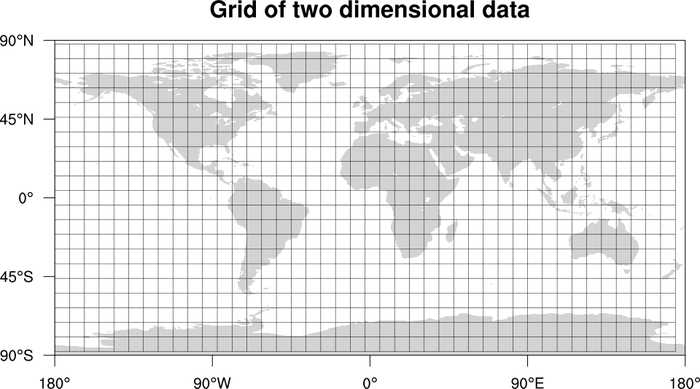жҳҜеҗҰеҸҜд»ҘеңЁqmlдёӯеҲӣе»әең°еӣҫзҪ‘ж јпјҹ
жҲ‘жӯЈеңЁдҪҝз”Ёpyqt5з”іиҜ·qmlпјҢ并еёҢжңӣеңЁжҲ‘зҡ„ең°еӣҫдёӯж·»еҠ ең°еӣҫзҪ‘ж јгҖӮдҪҶжҲ‘жңүзӮ№дёҚзҹҘйҒ“д»Һе“ӘйҮҢејҖе§ӢгҖӮжүҖд»Ҙз”ҡиҮіеҸҜд»ҘеҲ¶дҪңдёҖдёӘпјҢеҰӮжһңжҳҜпјҢжҳҜеҗҰжңүдёҖдёӘе°ҸдҫӢеӯҗжҲ–зұ»дјјзҡ„дёңиҘҝи®©жҲ‘ејҖе§ӢиҖғиҷ‘пјҹиҝҷе°ҶжҳҜжҲ‘зҡ„map.qmlгҖӮ
import QtQuick 2.0
import QtQuick.Controls 2.2
import QtQuick.Window 2.0
import QtLocation 5.9
import QtPositioning 5.5
Item {
id: myItem
Plugin {
id: mapPlugin
name: "mapboxgl"
}
Map {
id: map
objectName: "mapboxgl"
property double lat: 47.368649
property double lon: 8.5391825
visible: true
anchors.fill: parent
plugin: mapPlugin
center {
latitude: lat
longitude: lon
}
zoomLevel: 14
ListView {
height: 1
model: map
delegate: Text {
text: "Latitude: " + (center.latitude).toFixed(3) + " Longitude: " + (center.longitude).toFixed(3)
}
}
MouseArea{
id: mouseArea
property var positionRoot: map.toCoordinate(Qt.point(mouseX, mouseY))
anchors.fill: parent
onClicked: {
var component = Qt.createComponent("addAttribute.qml")
if (component.status === Component.Ready) {
var dialog = component.createObject(parent,{popupType: 1})
dialog.sqlPosition = positionRoot
dialog.show()
}
}
}
MapQuickItem {
id: marker
objectName: "marker"
visible: false
anchorPoint.x: 0.5 * image.width
anchorPoint.y: image.height
sourceItem: Image {
id: image
source: "icons/markerIcon.png"
MouseArea{
anchors.fill: parent
onClicked: {
ToolTip.timeout = 2000
ToolTip.visible = true
ToolTip.text = qsTr("Coordinates: %1, %2").arg(marker.coordinate.latitude).arg(marker.coordinate.longitude)
}
}
}
}
MapItemView {
model: markerModel
delegate: MapQuickItem{
anchorPoint: Qt.point(2.5, 2.5)
coordinate: QtPositioning.coordinate(markerPosition.x, markerPosition.y)
zoomLevel: 0
sourceItem: Column{
Image {
id: imag
source: "icons/markerIcon.png"
MouseArea{
anchors.fill: parent
onClicked: {
ToolTip.timeout = 2000
ToolTip.visible = true
ToolTip.text = qsTr("Coordinates: %1, %2".arg(markerPosition.x).arg(markerPosition.y))
}
}
}
Text {
text: markerTitle
font.bold: true
}
}
}
}
MapParameter {
type: "source"
property var name: "coordinates"
property var sourceType: "geojson"
property var data: '{ "type": "FeatureCollection", "features": \
[{ "type": "Feature", "properties": {}, "geometry": { \
"type": "LineString", "coordinates": [[ 8.541484, \
47.366850 ], [8.542171, 47.370018],[8.545561, 47.369233]]}}]}'
}
MapParameter {
type: "layer"
property var name: "layer"
property var layerType: "line"
property var source: "coordinates"
property var before: "road-label-small"
}
MapParameter {
objectName: "paint"
type: "paint"
property var layer: "layer"
property var lineColor: "black"
property var lineWidth: 8.0
}
MapParameter {
type: "layout"
property var layer: "layer"
property var lineJoin: "round"
property var lineCap: "round"
}
}
}
зҪ‘ж јзңӢиө·жқҘеғҸиҝҷж ·гҖӮ

1 дёӘзӯ”жЎҲ:
зӯ”жЎҲ 0 :(еҫ—еҲҶпјҡ0)
иҰҒз»ҳеҲ¶зҪ‘ж јпјҢиҜ·дҪҝз”ЁCanvasпјҢеҰӮдёӢжүҖзӨә
import QtQuick 2.0
import QtQuick.Window 2.0
import QtLocation 5.5
import QtPositioning 5.5
Window {
visible: true
title: "Python OSM"
width: 640
height: 480
Map {
id: map
anchors.fill: parent
plugin: Plugin {
name: "osm"
}
center: QtPositioning.coordinate(-12.0464, -77.0428)
zoomLevel: 14
}
Canvas {
id: root
anchors.fill : parent
property int wgrid: 20
onPaint: {
var ctx = getContext("2d")
ctx.lineWidth = 1
ctx.strokeStyle = "black"
ctx.beginPath()
var nrows = height/wgrid;
for(var i=0; i < nrows+1; i++){
ctx.moveTo(0, wgrid*i);
ctx.lineTo(width, wgrid*i);
}
var ncols = width/wgrid
for(var j=0; j < ncols+1; j++){
ctx.moveTo(wgrid*j, 0);
ctx.lineTo(wgrid*j, height);
}
ctx.closePath()
ctx.stroke()
}
}
}
зӣёе…ій—®йўҳ
- жҳҜеҗҰеҸҜд»Ҙе°ҶQMLдёӯзҡ„Pathviewе…ғзҙ и®ҫзҪ®дёәеңЁеҲ°иҫҫжЁЎеһӢдёӯзҡ„жңҖеҗҺдёҖдёӘе…ғзҙ ж—¶еҒңжӯўпјҹ
- жҳҜеҗҰеҸҜд»ҘеҲӣе»әдёҖдёӘ4x4 flexboxзҪ‘ж јпјҹ
- жҳҜеҗҰеҸҜд»ҘдҪҝз”ЁQMLеҲӣе»әж–°зӘ—еҸЈ
- жҳҜеҗҰж— жі•еңЁQMLдёӯеҲӣе»әең°еӣҫж•°жҚ®зұ»еһӢпјҹ
- жҳҜеҗҰжңүеҸҜиғҪйҒҝе…Қиҙўдә§з»‘е®ҡпјҹ
- жҳҜеҗҰеҸҜд»ҘеңЁqmlдёӯеҲӣе»әең°еӣҫзҪ‘ж јпјҹ
- жҳҜеҗҰеҸҜд»ҘеңЁqmlдёӯеҲ¶дҪңеҫӘзҺҜж»‘еҠЁйЎ№зӣ®пјҹ
- жҳҜеҗҰеҸҜд»Ҙд»ҺC ++еҲӣе»әQml组件пјҹ
- жҳҜеҗҰеҸҜд»Ҙи®ҫзҪ®ComboBox scrollBarзҡ„ж ·ејҸпјҹ
- жҳҜеҗҰеҸҜд»ҘеңЁQmlдёӯдҪҝз”ЁDartеә“пјҹ
жңҖж–°й—®йўҳ
- жҲ‘еҶҷдәҶиҝҷж®өд»Јз ҒпјҢдҪҶжҲ‘ж— жі•зҗҶи§ЈжҲ‘зҡ„й”ҷиҜҜ
- жҲ‘ж— жі•д»ҺдёҖдёӘд»Јз Ғе®һдҫӢзҡ„еҲ—иЎЁдёӯеҲ йҷӨ None еҖјпјҢдҪҶжҲ‘еҸҜд»ҘеңЁеҸҰдёҖдёӘе®һдҫӢдёӯгҖӮдёәд»Җд№Ҳе®ғйҖӮз”ЁдәҺдёҖдёӘз»ҶеҲҶеёӮеңәиҖҢдёҚйҖӮз”ЁдәҺеҸҰдёҖдёӘз»ҶеҲҶеёӮеңәпјҹ
- жҳҜеҗҰжңүеҸҜиғҪдҪҝ loadstring дёҚеҸҜиғҪзӯүдәҺжү“еҚ°пјҹеҚўйҳҝ
- javaдёӯзҡ„random.expovariate()
- Appscript йҖҡиҝҮдјҡи®®еңЁ Google ж—ҘеҺҶдёӯеҸ‘йҖҒз”өеӯҗйӮ®д»¶е’ҢеҲӣе»әжҙ»еҠЁ
- дёәд»Җд№ҲжҲ‘зҡ„ Onclick з®ӯеӨҙеҠҹиғҪеңЁ React дёӯдёҚиө·дҪңз”Ёпјҹ
- еңЁжӯӨд»Јз ҒдёӯжҳҜеҗҰжңүдҪҝз”ЁвҖңthisвҖқзҡ„жӣҝд»Јж–№жі•пјҹ
- еңЁ SQL Server е’Ң PostgreSQL дёҠжҹҘиҜўпјҢжҲ‘еҰӮдҪ•д»Һ第дёҖдёӘиЎЁиҺ·еҫ—第дәҢдёӘиЎЁзҡ„еҸҜи§ҶеҢ–
- жҜҸеҚғдёӘж•°еӯ—еҫ—еҲ°
- жӣҙж–°дәҶеҹҺеёӮиҫ№з•Ң KML ж–Ү件зҡ„жқҘжәҗпјҹ
